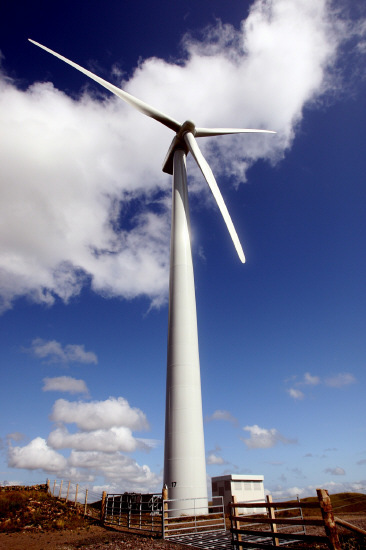The UK Government must do more to attract investment if the country is to take advantage of the boom in renewable energy technologies, it has been warned.
Tayside and Fife are both hoping to capitalise on the growing demand for offshore wind energy but leading business group the CBI has warned that many businesses are still wary of investing in the sector.
In a report published on Tuesday the organisation, which represents nearly 250,000 businesses, claims nearly £150 billion of private investment will be required over the next 20 years.
However, the CBI doubts this can realised and claims that without it the UK will miss out on the economic and environmental benefits of a low-carbon economy.
Chief policy director Katja Hall said, “We know the UK needs a balanced energy mix to cut emissions and grow the low-carbon economy but the big question is how we pay for it.
“Businesses want to get on with building new low-carbon technologies but there is still too much policy uncertainty.”
She added, “It is particularly important that the planning system delivers timely decisions and there are no sudden policy shifts as we saw with the Carbon Reduction Commitment.”
The CBI report was based on a range of interviews with businesses including utility companies and manufacturers about potential barriers to investment.
Omar Abbosh from Accenture, which carried out the research, said, “If the government reduces investment risks, low-carbon spending can happen sooner, driving economic growth and cutting the cost to the end consumer.
“If not, investment could be attracted to other countries with more appealing incentives.”
Dundee’s deep-water dock and port could make it a key site for the offshore wind industry.
Spanish turbine manufacturer Gamesa has already signed a memorandum of understanding to explore opening a maintenance and manufacturing base in the city.
For that to happen, however, investment will be needed to develop offshore wind farms in the North Sea.
The SNP has pledged that all of Scotland’s electricity requirements will be met from renewable sources by 2020, up from the 80% target they had originally set. But industry leaders are sceptical that this is possible without massive investment in offshore wind farms.
Paul Brewer, a partner and energy specialist at PricewaterhouseCoopers, said, “The difference between the achieving the existing 80% target and a 100% target would have to come from a substantial acceleration in offshore wind development.
“But there are still a number of constraints on that happening, not the least of which is finance for that investment.”
CBI Scotland director Ian MacMillan added, “What is needed is Scottish electricity to be generated from a range of different sources in order to ensure security, consistency of supply and delivering to customers at a price that is affordable.”
